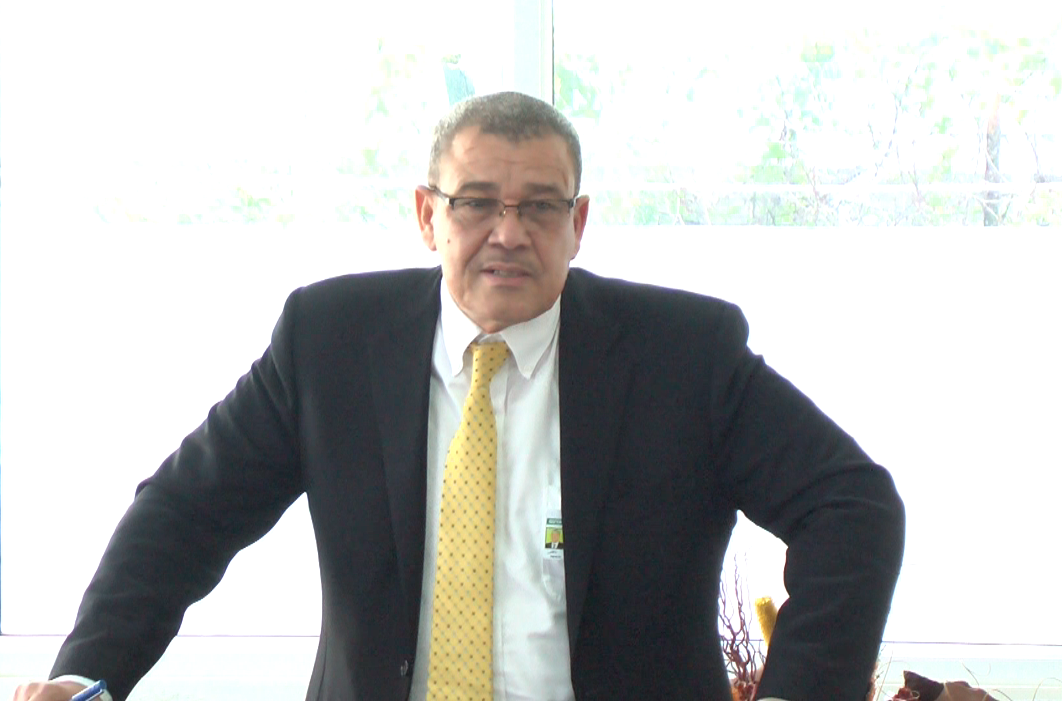… as Authority registers 10% dip in VAT revenue collection
As the Guyana economy continues to show signs of stagnation, the country’s premier tax collection body – the Guyana Revenue Authority (GRA) – has reported that its revenue collection has taken a dip.

This was revealed by Commissioner General, Godfrey Statia, at a press conference on Thursday at the authority’s Camp Street, Georgetown, office.
“VAT (Value Added Tax) revenues are down at least 10 per cent and VAT revenues are down, both on the domestic side and on the import side,” he stated.
In the same breath, however, the GRA Head pointed out that the VAT revenues are down simply as a result of the reduction in the rates. Government in its 2017 Budget slashed the value-added tax by two per cent, bringing it down to 14 per cent.
According to Statia, the authority had expected that the revenue collection would go down based on the rate deduction by some 12.5 per cent. Nevertheless, he posited that with the move around of certain things to standard rating and the moving away from zero-rated to exempt taxes, there ought to have been an even out of the process.
“But that is not achieved as yet and it is because it is early in the year… that is where we now need to go out and do our inspections and follow-up so that people know what is going on. But we have seen that downward trend and we are working on it because it is supposed to be revenue neutral,” the GRA head outlined.
Moreover, in explaining the decline in the revenues, Chairman of the GRA Board of Directors, Rawle Lucas, pointed to the fact that the tax base for the VAT is expenditure, that is, money that people spend, the level of spending in the economy with respect to VAT and the level of input and the value of imports with respect to VAT as well.
In fact, he outlined that with regard to imports, petroleum imports used to be one of the high generating sources of VAT revenues but since the price of petroleum reduced significantly, this in itself is also contributing to a reduction in the revenues earned by the Authority.
Notwithstanding, the Chairman opined that it is still too early to ascertain the effect of the reduction of the VAT revenues.
“In this stage for 2017, the analysis has not been completed to see where the greater effect is – whether it is a reduction in the tax base or whether it’s a consequence of the shifting of the threshold for VAT compliance/registration or whether it has something to do with the reduction of the rates,” Lucas argued.
In the meantime, the GRA Commissioner General said the tax collection body is working assiduously to ensure that businesses and individuals are tax compliant in the relevant areas. Only recently, it was revealed that work of a special enforcement team has resulted in scores of city businesses being made to register for the payment of VAT.
According to Statia at Thursday’s press conference, businesses all across the country have been engaged in this practice but it is more blatant among businesses in central Georgetown.
“We know for sure there have been certain businesses in the Regent and Robb streets area that were not registered for VAT and were not paying the VAT. We have since taken measures to get into that area and register those persons.
I think we’ve registered about 80 plus persons/businesses so far in that area alone,” he disclosed.
The GRA Head hinted that the majority, if not all, of those unregistered businesses are owned by foreign nationals. He noted that they are going to go after all of them and even backdate all the years they have been here.
“What we are actually looking at, I tell my staff, is the 360 degree approach. There are a lot of importers that do not charge the VAT. We do not check to see whether they’re registered for the VAT, and they import and they buy the US currency and they export and the economy doesn’t get anything from it,” he stated.
According to the Commissioner General, the Revenue Authority has been using a series of information, even third party information, to identify and locate such businesses. In fact, he added the GRA has actually been getting information even from the business community.
“People who have been actively paying their VAT, people who recognise that other people are not paying the VAT, who’ve recognised that they may be charging the wrong rates for the VAT – they’ve been calling us now and giving us all the information,” he revealed.
Statia asserted that the Authority is enjoying this type of cooperation from the public and is looking forward to such support, since it is actually helping to level the playing field, “which is what the GRA is all about and is trying to do.”
























